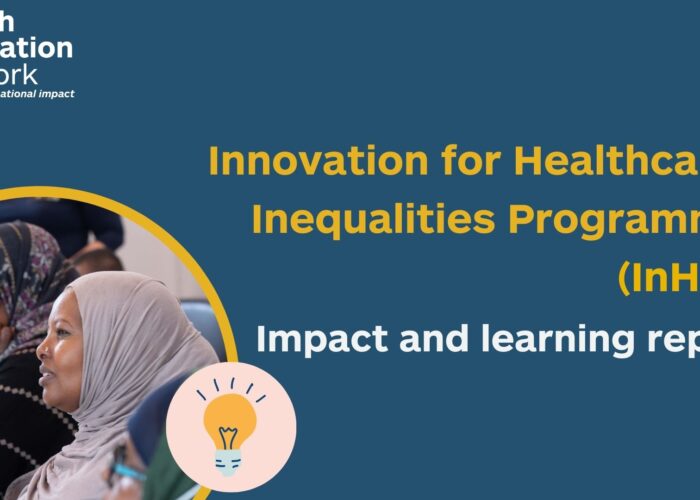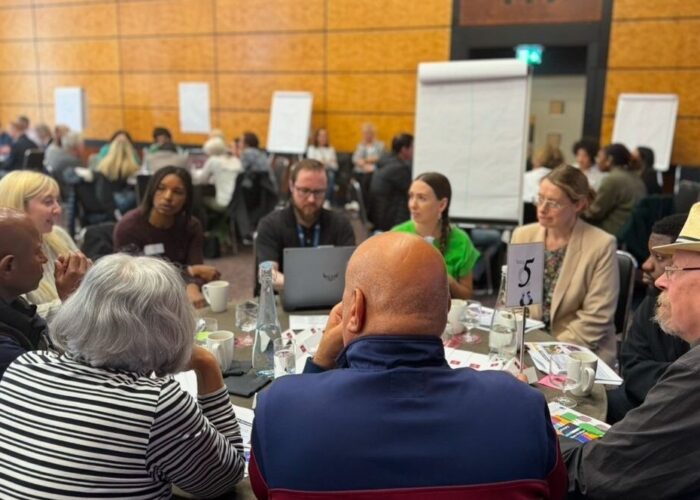 At ICHP our fantastic people and our intelligent use of data are two of the key elements which make up the very fabric of how we work. Our Business Intelligence team brings these two factors together to provide everything from award-winning dashboards to population health analysis. As we head into 2020 we look back on a year of growth and collaboration for the team.
At ICHP our fantastic people and our intelligent use of data are two of the key elements which make up the very fabric of how we work. Our Business Intelligence team brings these two factors together to provide everything from award-winning dashboards to population health analysis. As we head into 2020 we look back on a year of growth and collaboration for the team.
The ICHP Business Intelligence team once again shared our expertise far and wide last year, supporting the NHS and other partners to better understand the health of their local populations, judge the potential impact of new interventions and ways of working, and deliver evaluations that offer real insights into service change.
During 2019 we grew in both skills and numbers, with five new team members (including myself) joining and a real focus on professional development. During the year, three of the team graduated with an MSc, two with a PhD and another started their PhD.
Our investment in training and people saw our health economists reinforcing their modelling skills and our analysts built on their software experience and expertise. We’re using the visualisation software Tableau ever more in our evaluations, so we’ve increased training in that area and we were delighted to be invited to speak at the healthcare Tableau user group (Find out more about data visualisation here).
We also developed the team’s project management skills through an agile project management workshop with external trainers, and two of our analysts are undertaking Six Sigma project management training.
A number of our analysts have joined the Association of Professional Health Analysts and we hosted its first London event at our offices.
When I joined ICHP it was clear that I would be leading a very special group of people who all share a passion to make a positive difference to healthcare (Read more here). It has been great to see their achievements over the last 12 months. The number of projects the team supported grew by about a fifth last year. Here are just a few highlights:
Focus on population health
All our work is focused on where we believe we can make a positive difference and population health is one of those areas. Every year the NHS invests millions of pounds in vaccinating the most vulnerable members of our society against flu. But we know that a large proportion of those who could benefit from the jab do not have it, despite being among the most vulnerable to flu-related complications such as pneumonia or other serious respiratory problems.
A key step to address this low uptake is allowing system leaders a view of the progress on the vaccination programme so they can potentially reallocate resources and work together to address the population’s needs. Find out more about how our work will help make this happen here.
We have also focused on how case finding – the last step in population health management analysis – can help support individualised patient treatment.
To support an understanding of our analysis and work on population health, we have further developed the tools we use to communicate the key messages from our research. This includes our interactive dashboard focused on atrial fibrillation, which aims to help reduce the number of people experiencing strokes.
The international stage
We showcased our work at the world’s leading global conference for health economics and outcomes research, the International Society of Pricing and Outcomes Research’s conference (ISPOR 2019), held in New Orleans in May. The event brought together more than 4,000 patient representatives, healthcare leaders, policy makers and researchers.
We shared our industry-leading approaches to population health techniques, looking specifically at the use of Difference in Differences (DiD) analyses. DiD analyses are typically used to estimate the effect of a specific intervention by comparing changes in outcome over a period of time between a population that has been affected by it and a population that has not. They are particularly useful for healthcare providers and commissioners looking to understand the impact of any changes they make.
Julia Wilkins, Head of Data and Analytics, was also invited to speak at the prestigious Max Planck Institute for Molecular Genetics in Germany in May, following her presentation to the All Party Parliamentary Group on rare, genetic and undiagnosed conditions.
Academic and international collaborations
We’ve also been working closely with a number of partners including universities. Earlier in the year, we hosted Oxford Brookes University for an interactive session with a group of students on the public health degree course. We spoke about our work on population health and the various types of analysis we do in that area – in particular, Social–Technical Allocation of Resources (STAR).
We also extended an invitation for a delegation of leaders from World Bank Poland and the Polish National Health Fund to join us in London for a series of knowledge-sharing sessions. The World Bank is funding the Polish National Health fund’s work in setting up integrated care systems (ICSs) and they reached out to us, not just for our expertise and experience in data-led population health management, but also because we have already collaborated with several of the newly-emerging ICSs in England.
In another international collaboration, we linked with French company HEVA to help support the NHS in improving care for sepsis patients. HEVA specialises in the analysis of big health data and the development of innovative tools, and our recent work together focused on using its data mining technique and machine learning to analyse NHS data and design improved pathways for patients with sepsis.
Exploring new ground
At Imperial College London’s Centre for Blast Injury Studies, researchers found that blast is a really complicated injury from the point of wounding, through rehab and beyond hospital discharge. Our research into how much care is needed for victims of bomb blast injuries, including working with the charity Action on Armed Violence, could inform the approach to humanitarian aid in conflict zones, but also has implications for the NHS in helping to identify what response is appropriate after a bomb blast and what specialities patients need. We took part in a conference on blast injury in July, following which we were invited to present our work at the second International Blast Injury Research Network (IBRN) Blast Injury and Protection Research Forum, held in Cape Town, South Africa.
Planning for 2020
We’re proud of the work we completed in 2019 and the role it has played in improving NHS services for patients now and in the future. Over the next year we will build on our recent growth to provide an even better service to our clients so we can all work together towards the same goal – ensuring patients benefit from the knowledge we develop.
By Business Manager Lauren Hiribarne



